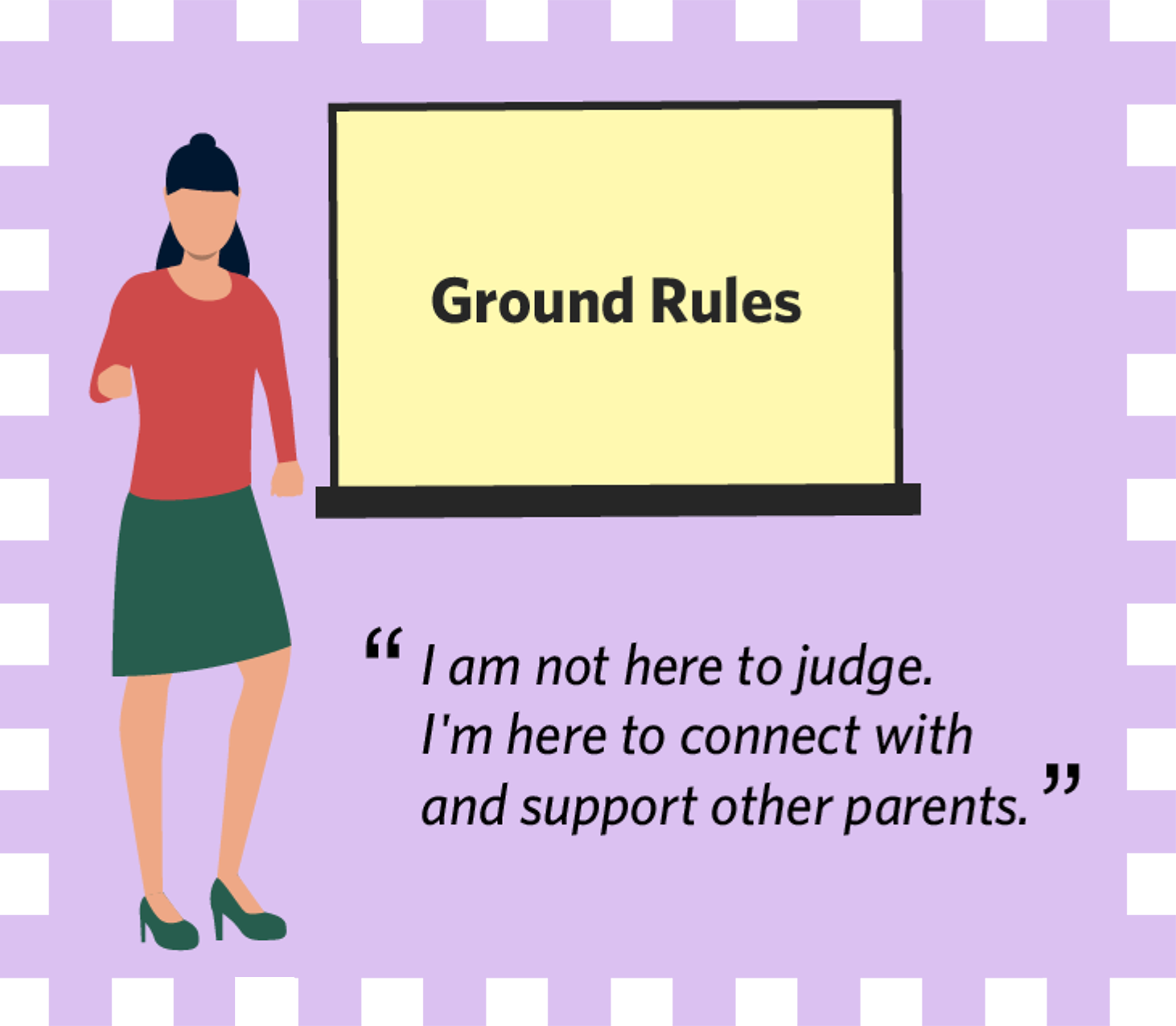A Remote Peer Support Intervention for Deaf Parents: Findings from a Pilot Study
Mike McKee, Jess Cuculick, Jessica Contreras, and Tiffany Panko · June 2023
[Download PDF | Plain-language version]
Introduction
Approximately 17% of American adults report some degree of hearing loss, including about 1 million adults who consider themselves as part of the Deaf American Sign Language user community (or, Deaf). The Deaf community frequently experiences miscommunication and disparities in healthcare settings, and this results in insufficient knowledge of basic health information, including information related to their children (i.e., infant/childcare practices, breastfeeding practices, etc.). Deaf individuals are also excluded from incidental learning opportunities, which can be important sources of child-rearing information. This project developed and delivered a structured virtual parental peer-support intervention (Parents Empowering Parents) tailored to address parenting needs among Deaf parents. The goal of Parents Empowering Parents is to increase the Deaf community’s support and knowledge related to parenting. We aimed to demonstrate whether the intervention will be feasible to implement; that is, whether this type of intervention can be successfully implemented with this community.
Intervention Implementation
We electronically distributed flyers and videos in American Sign Language to recruit Deaf parents from the United States to participate in the intervention. Once they decided to join the project, participants each engaged in at least three virtual peer support sessions via Zoom. These sessions were led by two Deaf individuals: one physician and one counselor. Each session began with a review of ground rules:
Confidentiality: Anything said at any time stays in the group and will not be repeated outside of the group.
Privacy: No group member is ever required to answer any questions, participate in any activity, or share anything.
Dignity: Please respect the opinions and experiences of other parents. Humiliation, hazing, or bullying will not be tolerated.
 Responsibilities: Please be mindful of who is sharing and do not interrupt. We want to create a safe space where everyone can share. Please repeat this to yourself: I am not here to judge. I am here to connect with and support other parents. I understand that if at any time I break the above rules, I will be asked to leave the support group.
Responsibilities: Please be mindful of who is sharing and do not interrupt. We want to create a safe space where everyone can share. Please repeat this to yourself: I am not here to judge. I am here to connect with and support other parents. I understand that if at any time I break the above rules, I will be asked to leave the support group.
The sessions focused on education (parenting skills/knowledge, childcare, child healthcare), social support, and parenting-self efficacy. All of the topics covered were derived from the ParentingWell approach, which promotes opportunities to conduct family-focused conversations in behavioral-healthcare settings. Facilitators asked questions such as: Where are your kids living? What does help with childcare tend to look like? How does your family communicate? How has raising a family influenced your health or wellbeing?
Participants were randomly assigned to different groups; each group received sessions delivered in one of two formats—video or chat—for one hour a week for a month. In the video groups, participants turned on their Zoom video, showed their faces, and communicated through American Sign Language. In the chat group, participants did not turn on their video and communicated through written English.
 A total of 37 Deaf parents were recruited; 27 parents completed the entire study (they attended at least three sessions out of the four that were offered). Of the 27 parents, 14 were in the video format and 13 were in the chat format. In the chat group, the mean age was 34; in the video group, the mean age was 39. Across the two groups, there were 19 white participants, 1 Black participant, 2 Hispanic or Latino participants, 1 Asian participant, 4 participants representing two or more races, and 1 participant of a different race/ethnicity. Notably, in the first three groups, all of the participants were white. Therefore, we conducted targeted recruitment to increase racial and ethnic diversity for the final group, which consisted entirely of parents of color. Across the four groups, there were 2 male and 25 female participants.
A total of 37 Deaf parents were recruited; 27 parents completed the entire study (they attended at least three sessions out of the four that were offered). Of the 27 parents, 14 were in the video format and 13 were in the chat format. In the chat group, the mean age was 34; in the video group, the mean age was 39. Across the two groups, there were 19 white participants, 1 Black participant, 2 Hispanic or Latino participants, 1 Asian participant, 4 participants representing two or more races, and 1 participant of a different race/ethnicity. Notably, in the first three groups, all of the participants were white. Therefore, we conducted targeted recruitment to increase racial and ethnic diversity for the final group, which consisted entirely of parents of color. Across the four groups, there were 2 male and 25 female participants.
Results
Attendance was high for all sessions, ranging from 85% to 96%. The fact that participants consistently attended the sessions provides preliminary evidence for the feasibility of the intervention. In addition, participants shared that they were able to connect with and learn from their peers. There were no discernible differences across the two formats (video versus chat). Participants shared experiences such as:
“It was a good mix of younger and older kids, so I was able to relate to the experiences other parents had.”
“I had imagined a more stable group so my expectations were not met there but I also liked being able to talk to different moms about different topics so it is more about what the expectations are.”
“I was interested, learning more about the next stage and what to expect then.”
Conclusions
Overall, the virtual Parents Empowering Parents program seems to be beneficial for Deaf parents, as it enables collaboration and support for individuals going through similar phases in life. Also, the intervention seems feasible, as parents consistently attended multiple sessions. Future research is necessary in order to quantify the impact of the intervention on parents’ support and knowledge related to parenting.
Credit
Based on research conducted by Mike McKee, Jess Cuculick, Jessica Contreras, and Tiffany Panko.
How To Cite This Brief
McKee, M., Cuculick, J., Contreras, J. & Panko, T. (2023). A Remote Peer Support Intervention for Deaf Parents: Findings from a Pilot Study. National Research Center for Parents with Disabilities, Brandeis University, Waltham, MA.
